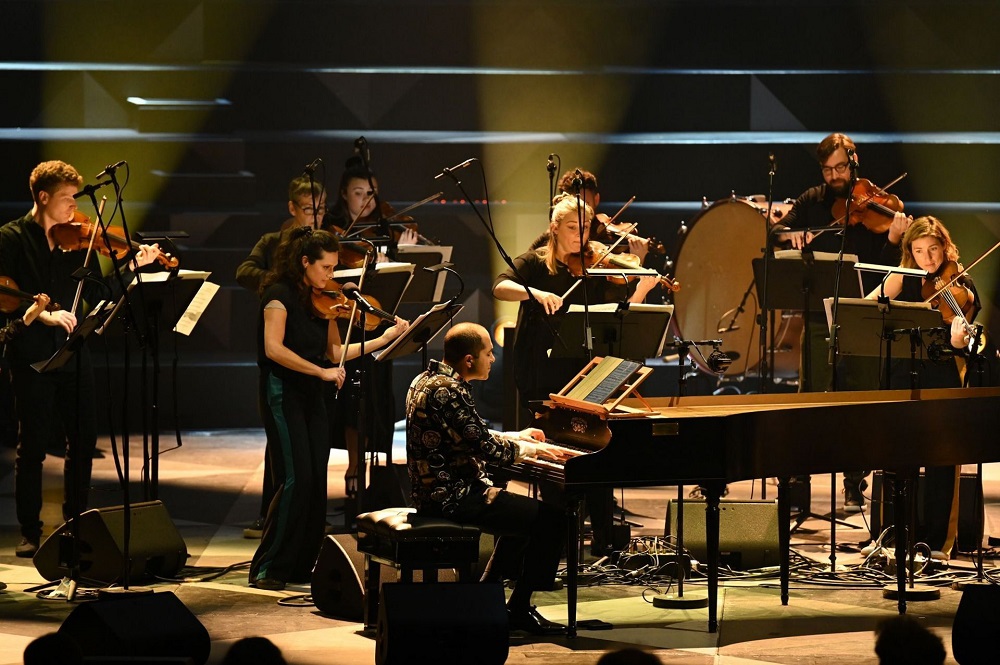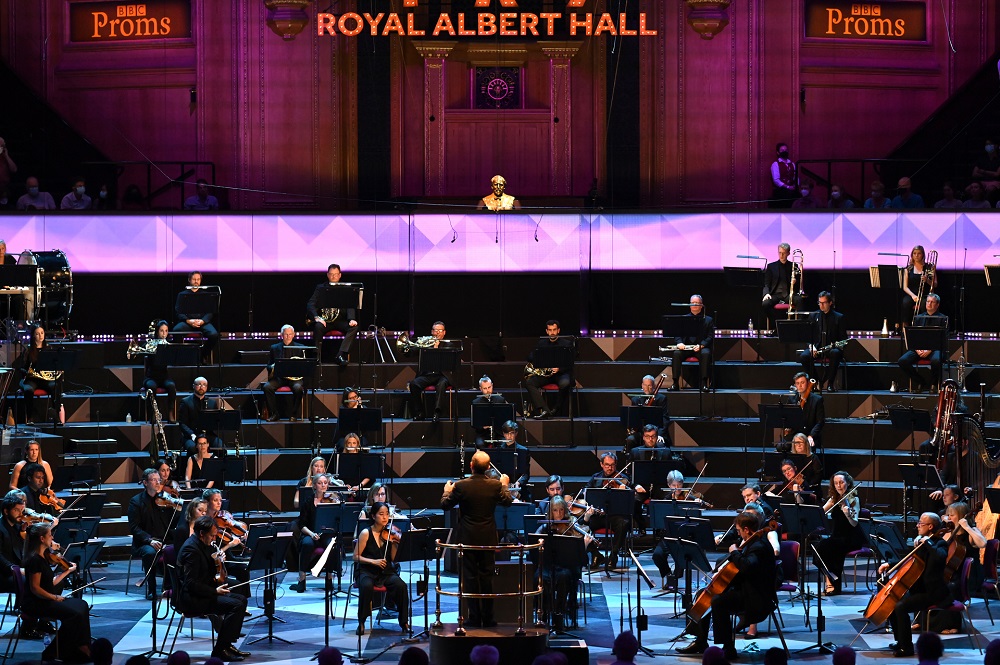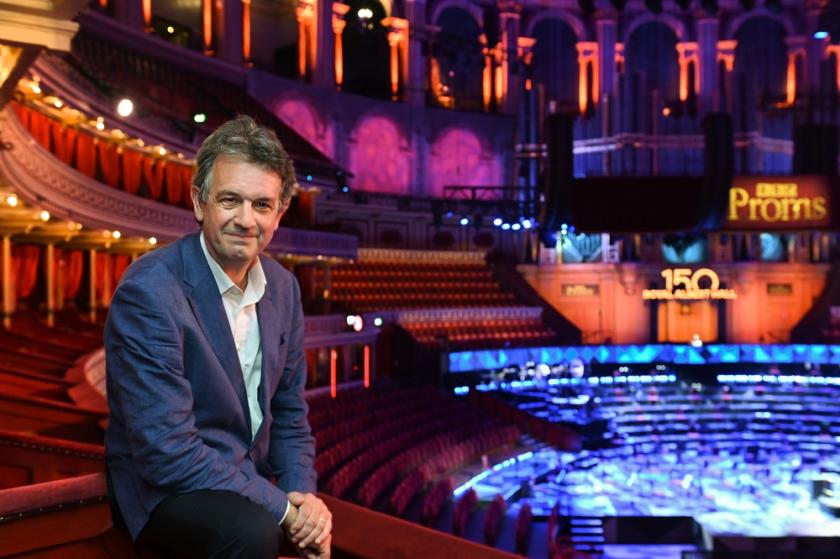As anyone who has been trying to steer an arts organisation through the pandemic will tell you, the greatest challenge has been uncertainty; learning to live with the unknown and the unexpected. When we planned this year’s Proms, I would have said the “safest” concerts were our two solo organ recitals, but we had to replace the organist in both cases – one had quarantine challenges; the other broke their arm. On the other hand, I might have expected problems getting an orchestra in from all over Europe (Mahler Chamber Orchestra) or being able to honour our commitment to bring Tristan und Isolde from Glyndebourne. In the end, by some miracle, both happened.
The Proms normally runs like a well-oiled machine with its own familiar timetable. Planning starts two to three years in advance; the programme is finalised in February each year; tickets go on sale in May; and eight weeks of concerts take place between July and September. This year we were planning during the winter lockdown, with no idea what might or might not be possible by the summer, and only opened the box office to full capacity six days before opening night. Talk about having to think on your feet.  But we had many things on our side – most importantly a Proms team who have responded with astonishing patience and creativity to every problem that was thrown at them, from how to keep people distanced in cramped backstage conditions, to how to set up a box office when you don’t know how many tickets you can sell, to how to find piano duettists who live together and are allowed to sit on the same piano stool. We have also seen astonishing levels of goodwill from the music community who have gone above and beyond to ensure that concerts go ahead as planned, even when the odds were stacked against us. It’s not every oboist who would be prepared to squeeze in two recitals at Cadogan Hall and a final rehearsal and performance of a George Benjamin premiere at the Albert Hall, all on the same day. Thank you, Olivier Stankiewicz.
But we had many things on our side – most importantly a Proms team who have responded with astonishing patience and creativity to every problem that was thrown at them, from how to keep people distanced in cramped backstage conditions, to how to set up a box office when you don’t know how many tickets you can sell, to how to find piano duettists who live together and are allowed to sit on the same piano stool. We have also seen astonishing levels of goodwill from the music community who have gone above and beyond to ensure that concerts go ahead as planned, even when the odds were stacked against us. It’s not every oboist who would be prepared to squeeze in two recitals at Cadogan Hall and a final rehearsal and performance of a George Benjamin premiere at the Albert Hall, all on the same day. Thank you, Olivier Stankiewicz.
The practical challenges of international travel have created a wonderful opportunity for this year’s Proms to be a celebration of British orchestras and ensembles. How lucky we are in this country to have such a range and depth of talent – from big symphony orchestras right through to our thriving chamber ensemble sector – and I was so pleased that we were also able to showcase new partnerships and initiatives. What a joy to witness Maxim Emelyanychev’s blossoming relationship with the Scottish Chamber Orchestra, to welcome the Manchester Collective’s original and eclectic programming to the Proms (pictured above with Mahan Esfahani at the harpsichord), and to hear the first live performances of John Wilson’s Sinfonia of London.  Of all the many debuts this summer, the most special for me was that of the Proms Festival Orchestra (pictured above) – a group that may not even exist beyond this year’s Proms and which comprises exclusively freelance orchestral players. By pulling together this concert late in the day, we were able not only to include a work on a scale unthinkable during our February lockdown planning (Mahler’s Fifth Symphony), but also to celebrate the superb freelance musicians who make up so much of our orchestral sector. This has not been an easy time for these players, and I am proud that we have, in a small way, been able to demonstrate how lucky we are to have instrumentalists of this calibre in the UK.
Of all the many debuts this summer, the most special for me was that of the Proms Festival Orchestra (pictured above) – a group that may not even exist beyond this year’s Proms and which comprises exclusively freelance orchestral players. By pulling together this concert late in the day, we were able not only to include a work on a scale unthinkable during our February lockdown planning (Mahler’s Fifth Symphony), but also to celebrate the superb freelance musicians who make up so much of our orchestral sector. This has not been an easy time for these players, and I am proud that we have, in a small way, been able to demonstrate how lucky we are to have instrumentalists of this calibre in the UK.
My overriding memory of this summer will not be the hoops and hurdles we overcame, but the sheer joy of performers and audiences communing with each other once again. One conductor told me he didn’t want to leave the stage at the end of his performance as the sound of applause was so intoxicating after months of silence. The foot stamping is back, along with the “heave ho” as a piano lid is lifted. They have never been more welcome. And orchestras have responded by playing their hearts out for a public that has delighted in every note they have heard. The Proms has long been a much-loved part of our cultural scene and miraculously we succeeded in staging 61 concerts over 44 days, with more than 2000 musicians. I hope that this year’s festival will be remembered as the joyful herald of a post-pandemic return to live music-making.















Add comment